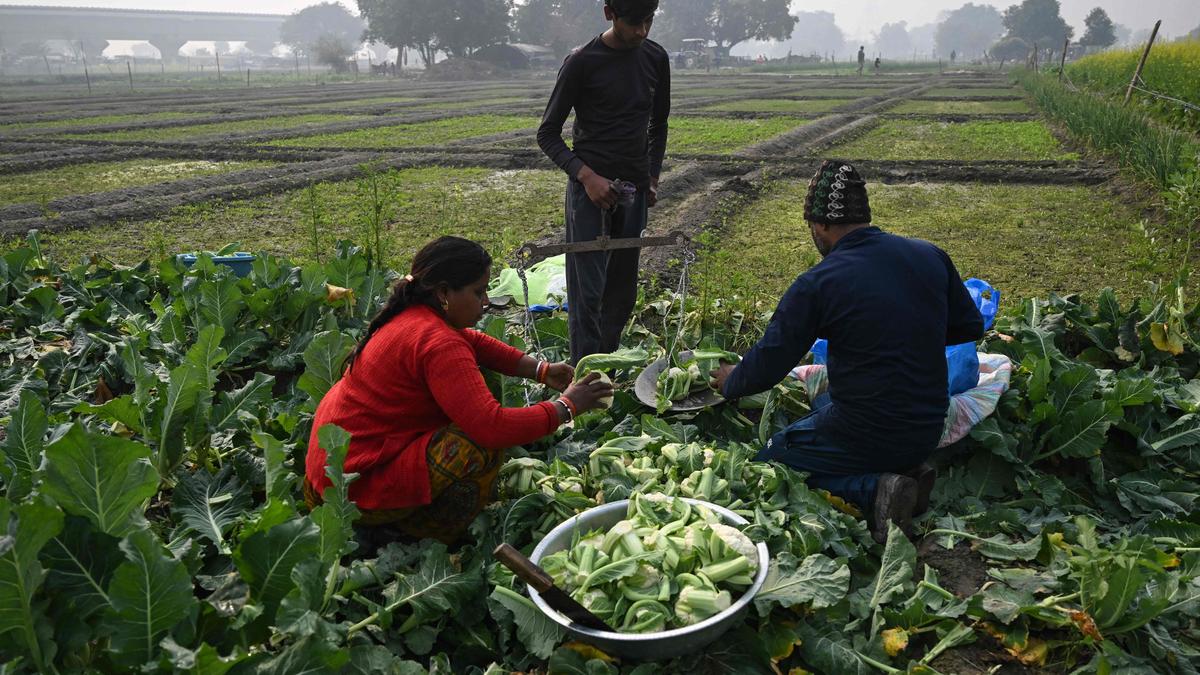
Farmers weigh cauliflower harvested from a field in New Delhi on February 1, 2025. India’s finance minister unveiled broad income tax cuts on February 1, as Prime Minister Narendra Modi’s government looks to bolster consumption and perk up a slowing economy. Consumers have been burdened by high food inflation and weak wage growth, two factors impacting urban consumption. (Photo by Arun SANKAR / AFP)
| Photo Credit: ARUN SANKAR
Union Finance Minister Nirmala Sitharaman, while presenting her eighth budget in Parliament on Saturday, said the Centre is trying to make the country a food basket of the world. Ms. Sitharaman said the Centre will establish a National Institute of Food Technology, Entrepreneurship and Management in Bihar.
“The institute will provide a strong fillip to food processing activities in the entire Eastern region,” she said. The Minister said a second Gene Bank with 10 lakh germplasm lines will be set up for future food and nutritional security. “This will provide conservation support to both public and private sectors for genetic resources,” she added.
The allocation for the Food and Public Distribution Ministry increased to ₹2,11,406.37 crore from ₹2,05,474.97 crore in 2024-25 revised estimates. Out of this, ₹2,03,420 crore is for food subsidy schemes, primarily for the Pradhan Mantri Garib Kalyan Anna Yojana (PMGKAY). In the last budget, the total allocation was ₹2,13,019.75 crore.
The Department of Consumer Affairs, on the other hand, received a decreased allocation of ₹4,360.72 crore. In the revised estimates of last financial year, it was ₹ 7,345.04 crore. A major decrease is in the allocation for price stabilisation fund. In this budget, the fund will get ₹4,019.83 crore. In the last revised estimates, the amount was ₹7,000 crore and in the last budget, the amount was ₹10,000 crore. The Centre has been claiming that it is taking strident measures to check rising prices of commodities such as onions, tomatoes, pulses and edible oils.
For the Ministry of Food Processing Industries, the allocation in this budget is ₹4,364.22 crore. In the last revised estimates, it was ₹2,796.79 crore. The major increase is for the Prime Minister Formalisation of Micro Food Processing Enterprises Scheme (PM FME). “The provision is for the scheme rolled out as a Centrally Sponsored Scheme in 2020 under Atma Nirbhar Bharat Package to benefit two lakh micro food processing units in the unorganised segment of food processing industry and to promote formalisation of the sector over a period of five years,” the budget documents noted.
Published – February 01, 2025 09:49 pm IST
